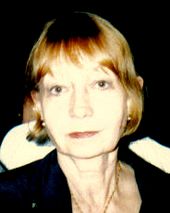Elżbieta Czyżewska facts for kids
Quick facts for kids
Elżbieta Czyżewska
|
|
|---|---|

Elżbieta Czyżewska (2007)
|
|
| Born |
Elżbieta Justyna Czyżewska
May 14, 1938 Warsaw, Poland
|
| Died | June 17, 2010 (aged 72) New York City, U.S.
|
| Alma mater | National Academy of Dramatic Art in Warsaw (MFA) |
| Occupation | Actress |
| Years active | 1958–2010 |
|
Notable work
|
Donna Frasquetta Salero in The Saragossa Manuscript (1964) Melinda Kalman in Music Box (1989) |
| Spouse(s) |
|
| Awards | Obie Award (1990) |
Elżbieta Czyżewska (born May 14, 1938, died June 17, 2010) was a famous actress. She acted in both her home country, Poland, and in the United States.
She became very popular in the early 1960s. She starred in important films like The Saragossa Manuscript (1964) and Everything for Sale (1969). Later, she won an Obie Award in 1990 for her acting in the play Crowbar.
Contents
Early Life and Family
Elżbieta Czyżewska was born in Warsaw, Poland, in 1938. She grew up to become a talented actress.
Her first husband was film director Jerzy Skolimowski. In 1965, she married David Halberstam. He was a reporter for The New York Times in Warsaw. She moved to the United States with him. They later divorced in 1977.
Acting Career in Poland
Elżbieta Czyżewska was at the top of her acting career in Poland. She starred in many films and plays. She was known for her charm and wit.
She often played characters who were smart and funny. These roles were different from the usual "Cinderella" stories. She made her characters strong and equal to the men in the films.
One of her most famous roles was in The Saragossa Manuscript (1964). This film was directed by Wojciech Has. She also had a big success on stage in 1965. She performed in Arthur Miller's play After the Fall.
She also acted in two serious films: Unloved (1965) and Everything for Sale (1968). These films showed a more serious side of her acting. They reflected the mood in Poland at the time.
Challenges and Exile
Czyżewska faced difficulties because of her marriage to David Halberstam. He was a reporter who wrote critically about the Polish government. Because of this, he was asked to leave Poland.
Czyżewska's acting career in Poland was interrupted. She was not allowed to work there for a while. She moved to the United States. She could not return to act in Poland until 1980. This was when the Solidarność movement gained influence.
Acting Career in the United States
After moving to the U.S., Elżbieta Czyżewska continued her acting career. She worked in both films and theater.
The 1987 Hollywood film Anna was partly inspired by her life. In the film, an actress from Europe struggles to find work in New York City. The main actress, Sally Kirkland, was nominated for an Academy Award for her role. She also won a Golden Globe in 1988.
Czyżewska performed in many plays in the U.S. She won an Obie Award in 1990 for her role in the play Crowbar. She also acted in plays by famous writers like Janusz Głowacki and Henrik Ibsen. She performed at important theaters like the American Repertory Theater and Yale Repertory Theater.
Her American films include Music Box and Running on Empty. She also appeared on television in the drama Misplaced on PBS.
In May 2005, Czyżewska received a special honor. She was given the Cultural Award of Merit by the Polish consulate in New York. This is the highest award a Polish-American can receive.
Her last major role was in the film June Weddings. She played a Russian immigrant in New York. Critics praised her performance, calling it "superbly acted."
Later Life and Legacy
Elżbieta Czyżewska passed away on June 17, 2010. She was 72 years old. She died in New York from esophageal cancer.
After her death, a play was written in her honor. It was called Erased/Elżbieta by John Guare. The play premiered in New York in 2011. It was a tribute to her life and career.
Images for kids
 | Emma Amos |
 | Edward Mitchell Bannister |
 | Larry D. Alexander |
 | Ernie Barnes |


